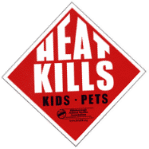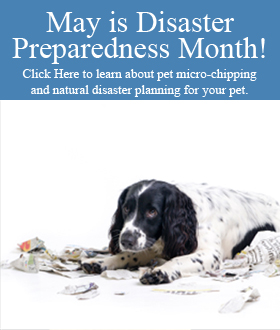Every year, Hillsborough Animal Health Foundation member veterinarians provide countless volunteer hours to schools throughout the Hillsborough County School System. Below are some of the primary messages that we share with children. If you are a school teacher or administrator, and are seeking a veterinarian or animal nurse to visit a school, email director@hahf.org for assistance.
Visit your Veterinarian… your pet’s next best friend!
Annual visits to your veterinarian’s office are essential to the health and well-being of your pet(s). During your pet’s annual exam, take the time to learn about your pet’s health and the necessary steps you should take to prevent future problems.
Your veterinarian is trained to prevent, detect and treat life threatening diseases such as heartworms, intestinal parasites and kidney disease.
Did you realize that vaccinations against diseases such as rabies, distemper and Parvo-virus for dogs and feline distemper for cats are recommended to ensure a healthy pet? Once your family has selected a veterinarian to care for your pet, it is important to always use that doctor so your pet’s medical history can be fully documented and understood, with continuity of care.
Caring for Puppies, Kittens Dogs and Cats
Puppies and kittens have special needs just like children. Good quality foods and fresh water are a must! Shelter, love, exercise and training are important, too. Puppies and kittens need examinations, vaccinations and deworming at an early age.
Taking proper care of your pet is a financial responsibility that must be considered before you assume the responsibility of owning a pet. First year health care cost may exceed $500. If you cannot afford to own a pet, don’t take the responsibility of caring for one.
Dogs need exercise regularly in addition to proper nutrition and medical care. Dogs should be kept in safe surroundings (fenced yard) and kept on a leash when outside of their yard.
It is very important to keep cats indoors as much as possible to keep them healthy and free of infections that they may get outside. Outdoor cats are often hit by automobiles which also makes it very important to keep them indoors as much as possible.
Caring for Birds and Exotics
Birds are very different animals from dogs and cats and have very different needs. Many avian diseases have very subtle symptoms but are highly contagious, so new birds should be kept apart from others for a period of at least six weeks after purchase.
Different species of birds have different housing, nutritional and companionship needs – so do your homework before buying so you can choose the best bird for your situation.
Veterinarians can examine your bird, answer your questions and guide you to keeping your bird healthy with proper care.
Exotic species, such as iguanas, ferrets, hedgehogs, guinea pigs, pot-bellied pigs, reptiles and skunks make up about nine percent of the American pet population. Before taking on an unusual pet, be sure to read up on its environmental and care needs. Not all of the more popular exotics make good companions in captivity . . . so do your homework ahead of time! Some exotics, however, can become good pets if caretakers understand their needs. Learn about the animal’s needs, getting information from a variety of sources. Veterinarians with a practice focused on exotic pets can educate you about the routine veterinary care necessary.
Pet Population Problems
Every pet deserves a good home! Frequently, pets are allowed to breed with no thought of good homes for the new puppies or kittens. Be a responsible pet owner! Many people don’t want to keep their pets anymore. They either abandon them or give them to a shelter. Some pets are found just roaming the streets. The shelters are already full of pets, many of which were suffering from starvation and neglect. There are so many they cannot be placed in good homes and are eventually destroyed. You can help prevent this problem by having your pet spayed or neutered.
Be a responsible pet owner. Do not add to the problem!
Contact your veterinarian about advice on spaying and neutering for the health and safety of your pet.
Leashes and Licenses
County ordinances require that all dogs and cats must be vaccinated against rabies, and licensed every year.
County leash laws state that no dogs be permitted to run at large. When on a leash, your dog can be easily controlled and will be much safer. Leashes are not required for cats. All dogs and cats should be identifiable. Dogs must wear a collar and tag, while cats must be identified with a tag or microchip, if outdoors.
Tag your dog – without it, your dog is just another stray. The tag is your pet’s ticket home!
Animals that are allowed to run loose are often hit by cars, or lost, never to be seen again by their rightful owners.
If your dog or cat is lost or stolen call:
Hillsborough County Animal Services: 744-5660
www.hillsboroughcounty.org/animalservices
If an animal bites a human, it must be reported to:
Hillsborough County Health Department: 307-8059
Car and Truck Safety
It is against the law to leave pets alone in a motor vehicle. In Florida, cars get very hot very quickly, and your pet might die in a few minutes.
 With Florida’s extremely warm temperatures, the interiors of automobiles, vans and trucks get up to 160 degrees in a matter of minutes. Your pet cannot deal with the high temperatures and can develop heat stroke. This can occur even with the window partially opened. Remember, the safety of your pet is in your hands.
With Florida’s extremely warm temperatures, the interiors of automobiles, vans and trucks get up to 160 degrees in a matter of minutes. Your pet cannot deal with the high temperatures and can develop heat stroke. This can occur even with the window partially opened. Remember, the safety of your pet is in your hands.
County law mandates that dogs are not allowed in the backs of open pickup trucks unless securely tethered or confined (in a cage or kennel) for their own protection and safety! Beware, also, of the heat from a hot truck bed. They can jump out or be thrown out by a sudden stop or bump in the road. Let your pet ride up front — with you – or stay safely at home.
Remember, the law is also for the protection of other drivers – not getting into accidents as they try to avoid hitting a dog on the road.
Neglect and Abuse
Animals should never be neglected or abused! They have important needs such as companionship and feel many emotions just like us. They feel pain when injured and should never be handled too roughly. Be sure to always have fresh water and adequate shelter for your pet. Give your pet lots of love and you will receive so much more in return.
Remember, abuse and neglect is against the law! If you see anyone harm or deliberately injure an animal, please call:
Hillsborough County Animal Services: 744-5660 www.hillsboroughcounty.org/animalservices
Boating and Water Safety
Pets are often overlooked when boating safety is considered. Dogs can easily be jarred from moving boats and pet drownings are not uncommon. Think safety for all those aboard when planning a boating trip. Take extra precautions when your pet is around the family swimming pool, seawall, dock or other potential water hazards. Animal life vests are available at marine centers.
For more information on boating safety, contact your local Coast Guard Auxiliary or Power Squadron: 228-2191
Wildlife and Seabirds
Pelicans, seagulls and other water fowl are frequently seen in Florida. These birds are natural hunters and should not be fed. Many seagulls are injured along our highways because people carelessly discard food scraps. Many pelicans fall prey to entanglement and death from discarded fishing lines. Let’s all help to ensure the safety of our wild birds.
Should you find an injured bird, contact: Suncoast Seabird Sanctuary (727) 391-6211 or call your veterinarian. Although beautiful in their own habitat, wild animals do not make good pets. These animals are not tamed easily and oftentimes end up being destroyed. Wild animals belong in the wild, not in cages!
Wild animals, particularly raccoons and skunks, are known carriers of rabies, which is fatal to humans.
Do not attempt to handle injured wild animals. Contact: Wildlife Rescue & Rehabilitation, Inc. (727) 399-1525
Guarding Against Gators
Alligators are commonly seen in Florida. Although they may seem quiet and harmless, they can in fact be very dangerous. Besides potentially harming us, our pets are extremely vulnerable to being attacked by an alligator. Don’t swim or allow your dog to swim in lakes known to harbor alligators. Do not feed the alligators. These animals can hunt for themselves.
For information, contact your local Public Safety Department or the Florida Fish & Wildlife Conservation Commission 1-(800) 282-8002
My Veterinarian’s name is:
________________________________
My Veterinarian’s phone number is:
________________________________
The following organizations join the Hillsborough Animal Health Foundation in promoting responsible pet ownership:
Hillsborough County Veterinary Medical Society
Hillsborough County Animal Services
Hillsborough County Public Schools
Tampa-Hillsborough County Public Libraries
For more information, contact:
Hillsborough Animal Health Foundation 221-4804
Hillsborough County Animal Services 744-5660
Hillsborough County Health Department 307-8059
Coast Guard Auxiliary/ Power Squadron 228-2191
Suncoast Seabird Sanctuary (727) 391-6211
Wildlife Rescue and Rehabilitation, Inc. (727) 399-1525
Florida Fish & Wildlife Conservation Commission 1-800-282-8002





































